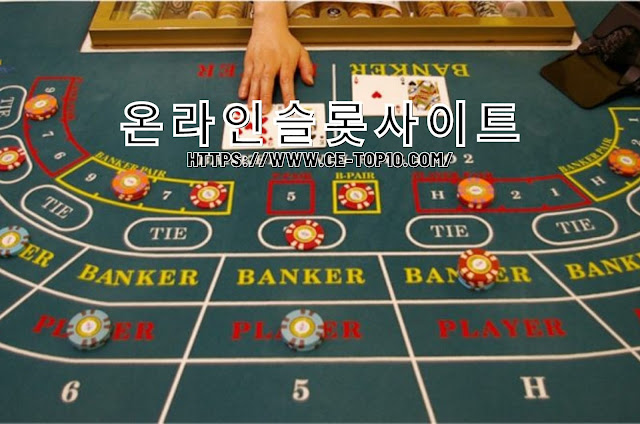CHECK - What's the significance here IN POKER
CHECK - What's the significance here IN POKER
In poker, checking, while being one of the five permitted activities, is basically a non-activity. So when would it be a good idea for you to check?
In poker 카지노사이트, checking is one of the developments a player is permitted to make while no wagering activity happened at this point.
At the point when you catch wind of what makes a decent poker player, number 1 at the highest point of the vast majority's rundown is hostility. Hostility is fine and dandy however to prevent you from being an excessively forceful neurotic at the table, there should be an equilibrium.
That equilibrium comes from checking and figuring out how to inactively play a few spots.
POKER CHECK Made sense of
Checking, while being one of the five activities you can make in poker, is basically a non-activity. At the point when you check, you decline the opportunity to cause a bet and you to don't give up your hand. All things considered, you concede your activity to the following player.
To have the option to check, a bet or raise can't have been made in that frame of mind before your activity. For instance, assuming you are first to follow up on the failure you have the choice to check as nobody has gotten the opportunity to make a bet in that wagering round. There is just a single circumstance where a player can check pre-flop - this is the point at which they are in the huge visually impaired and nobody has made a raise, yet players have limped in. In this situation, as the huge visually impaired is the last to act pre-flop, they have the choice of raising or checking.
If you have any urge to check while playing Naver live poker you have a couple of choices to flag your goal. The most clear way is to give the signal "check verbally". You can likewise tap the table with your fingers/hand, you can gesture towards the seller, you can make a hand movement - essentially any huge body activity that doesn't include putting chips over the wagering line when it's your chance to act will be deciphered as a check.
Assuming all players staying in the hand choose to check, the wagering round is viewed as complete and the following card is managed.
Really looking at In obscurity
Checking in obscurity is actually taking a look at your hand before checking it out. Dull activities are not restricted to checking, and they are generally used to take a tomfoolery action or to show how sure you are in your fortunate streak.
CHECKS Versus CALLS
Calling isn't exactly the same thing as checking. Checking is the deferral of activity to the following player, though calling matches a bet made by another player.
For instance, in the event that you are on the lemon and are confronting a bet from your rival your three choices are to overlay, call, or raise - there is no choice to check. On the off chance that you wish to call the bet, you should match the specific bet your adversary made except if the bet surpasses your excess stack where case you put in however much you can.
These are two generally various activities as checking can happen in the event that there has been no wagering activity, though calling can happen on the off chance that there has been wagering activity.
At the point when TO Actually look at IN POKER
Now that we've discovered that checking is basically a non-activity, it could appear to be something futile to do. Nonetheless, there are a few excellent motivations behind why we should check:
At the point when you have a mid-range hand
This ought to be your essential 바카라사이트 justification for needing to check - in the event that your hand isn't sufficient to make a worth bet and is areas of strength for too even think about feigning with then it ought to be checked. These hands will be ones in your reach and have around 40-60% value against your adversary's reach. Then again, it pays to crease these hands a specific number of hands to keep others speculating your play style.
There are a few hands at one or the flip side of this range that might need to check as they're "surrendering" and not being feigned in spite of how little value they have, and there are a hands that need to be checked to check-raise your rival.
In any case, the greater part of your checking reach will turn out to be these mid-range hands that don't create esteem from being wagered.
Sitting tight for a Decent Draw
On the off chance that we have a drawing hand, for example, four to a flush or four to a straight, we can some of the time draw that hand free of charge by checking. Assuming we're keep going to follow up on a specific road and we have the choice to check, that implies we can see the following card without placing in any cash.
Nonetheless, on the off chance that we're not endure to act then there is a gamble that a player behind us will wager, driving us to call to attempt to make our hand. Indeed, even with this gamble, checking is some of the time exhorted with a drawing hand as they won't generally wager and we'll get to draw at our hand for nothing at any rate a portion of the time.
Gathering Data
By giving the choice to wager and letting the following player to act settle on a choice, we get some data on their hand in view of their activity. On the off chance that they likewise check, we can sensibly expect that they don't have an incredible hand as they would probably wager it for esteem. We can likewise expect that they don't have a horrible hand as they would have made a move to feign.
The unwavering quality of this data will rely upon the player you're playing against - the trickier your rival is the more probable they are to 'trap' by checking with areas of strength for a, so watch out!
Tricking Different Players to Raise
a long time back checking to raise or "check-raising" was viewed as an unlawful move in a ton of poker games as it was viewed as terrible manners to hide the strength of your hand. We've made considerable progress from that point forward and the check-raise is presently an incredible asset in a player's munititions stockpile.
By checking and permitting your adversary to wager prior to raising yourself, you can get numerous wagers in on one road, against a rival who might have possibly called assuming you wagered yourself. Check-lifting is in many cases finished areas of strength for with to attempt to fabricate a pot however it accompanies the gamble that in the event that different players likewise check, you've squandered a series of wagering.
Pretending Shortcoming
Likewise to check-raising, you might need to check to pretend shortcoming to an excessively forceful player. It's an incredible move to slow play a beast hand. Against these players, you probably shouldn't raise immediately as they'll probably overlay anything arbitrary hand they were wagering. All things considered, in the event that you simply check-call, you can give them the rope to feign over various roads into your solid hand.
A ton of players, particularly live players, could do without to feign gives up different roads so you should realize your player well in the event that you will attempt this move. On the off chance that the player is the sort to shoot at whatever point they see shortcoming then, at that point, you've gotten yourself an imprint for this snare.
POKER CHECK: FAQ
Replies to the most widely recognized inquiries concerning actually taking a look at in poker.
What is actually looking at in poker?
Checking in poker is the deferral of your activity to the following player. It implies that you decide not to make a wagering activity yourself, nor do you give up your hand. You give the capacity to make any move to the player who is close to act.
Might you at any point check when an earlier player raises or bet?
No, you can check assuming there has been no wagering or raising on that road before your turn. In the event that another player has made a wagering activity, you have the choice to call that bet, in any case, this isn't equivalent to checking.
For what reason are different players collapsing as opposed to checking?
A few players might need to overlap as opposed to checking the stream as then they're not obliged to show their hand, in this manner concealing any data from their rival. While keeping your adversary in obscurity about how you play is smart, it is much of the time better for you to really look at the stream as opposed to collapsing as there is plausible - regardless of how thin - that you might succeed at standoff.
How would you check when it is your move?
In the event that you wish to check when it is your move, you can flag that to the vendor by saying the word 'check', by tapping the table with your hand, gesturing towards the seller, or by making a hand movement. A vendor will constantly affirm in the event that your activity signifies 'check' assuming they're uncertain.
When would it be advisable for you to check as opposed to wagering?
There are a few reasons you might need to check as opposed to wagering, for example, needing to draw free of charge, needing to check-raise a forceful rival, needing to assemble data from your rival, or allowing an excessively forceful player to feign into you.
While great poker requires a ton of hostility, knowing when to take your foot off the gas and play latently by checking is expected to adjust your game.
If you want more, CLICK HERE





Comments
Post a Comment